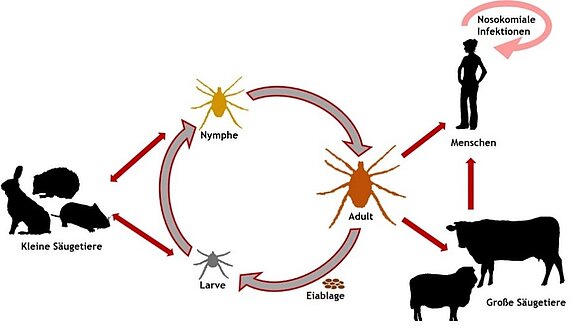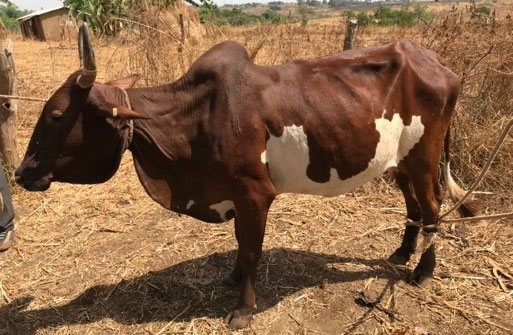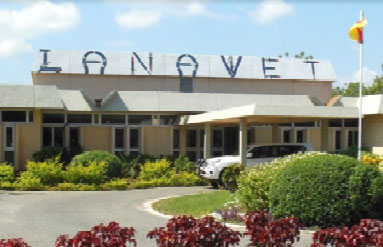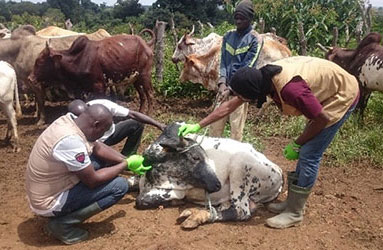EBOSURSY: Strengthening the capacity of LANAVET in viral hemorrhagic fever diagnostics, preparedness and research to WOAH Standard. Twinning Cameroon
INNT

Life cycle of the tick and transmission pathway of Crimean‐Congo hemorrhagic fever virus (CCHFV), © FLI
Aim of the Project:
Early detection of zoonotic pathogens emerging in wild and domestic animal populations before they become a threat to human health is a priority for the public health and animal health sectors. An effective and credible laboratory service is an essential component of any early detection system and is needed by countries to fulfil their reporting obligations to OIE on listed animal diseases and unusual epidemiological events or emerging diseases, and for investigating events of potential international public health concern. There is a need to strengthen animal health and human health institutions and partnerships that are responsible for managing existing and novel diseases. When appropriate, protocols and standards for responding to emerging zoonotic diseases should be jointly developed. Where a disease has the potential to impact a large number of people or animals improvements in governance, infrastructure and response capacity can have national significance.
Methodology:
Within the project several objectives will be performed: (1)Assess and enhance diagnostic capacities on viral hemorrhagic fevers (VHF) s, such as Crimean-Congo, Ebola and Rift Valley, and capabilities of the Candidate Laboratory to meet OIE Standards. (2) Assess and improve quality control measures at the virology branch of LANAVET Yaoundé and LANAVET Garoua. (3) Strengthen the role and responsibilities of LANAVET as a NRL for VHFs in Cameroon and as a centre of expertise for the region. (4) Introduce (molecular) epidemiological tools for VHF surveillance and control. (5) Initiate joint research projects to further elucidate VHF epidemiology and foster outbreak preparedness in the country and in adjacent areas.
Further information can be found on the project page:
https://rr-africa.oie.int/en/projects/ebo-sursy-en/project-and-partners/
Involved INNT scientists::
Prof. Dr. Martin H. Groschup
Dr. Martin Eiden
Dr. Sandra Diederich
Dr.Kerstin Fischer
Dr. Markus Keller



Project Partner:
Dr Abel Wade
Laboratoire Nationale Vétérinaire (LANAVET), Garoua, Kamerun
https://www.saviminepiacameroon.cm/en/speaker/laboratoire-national-veterinaire-lanavet-2

